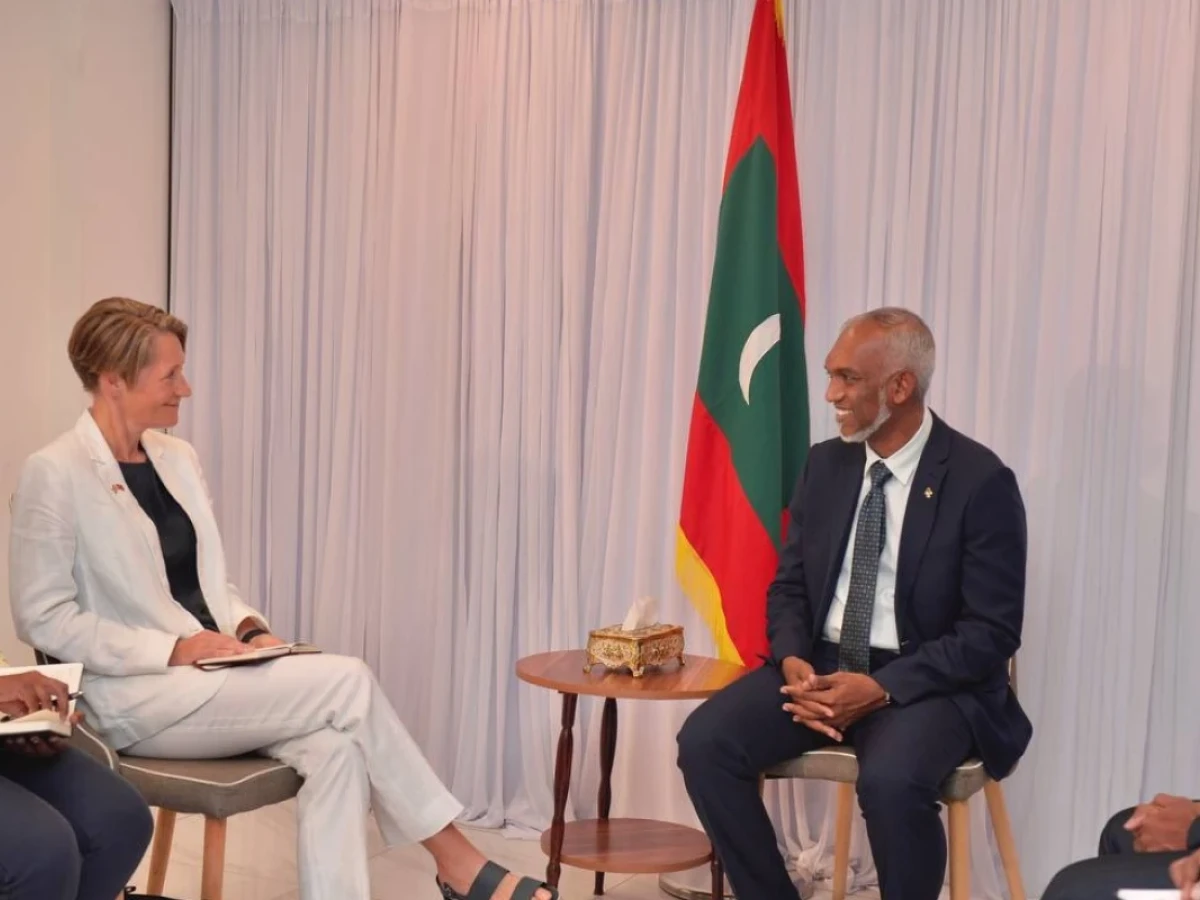
Muizzu's first foreign meeting with British envoy
Muizzu received his higher education from the University of London and the University of Leeds.
Top Stories
President-elect Dr Mohamed Muizzu and Vice-President-elect Hussain Mohmmed Latheef met with British high commissioner to Maldives Caron Röhsler on Wednesday.
This is the first foreign ambassador Muizzu has met since winning Saturday's presidential runoff.
The meeting was held at Muizzu's residence, M. Dhimyaath, which housed several campaign activities. Muizzu was accompanied by Vice President-elect Hussain at the meeting. An official of the British embassy also accompanied the ambassador.
Details of the meeting have not yet been released.
Muizzu received his higher education from the University of London and the University of Leeds.
Muizzu, who met the public on Monday for the first time since his victory, said his foreign policy is "pro-Maldives" and he will strengthen relations with any country that accepts it. He said he had received a request for a meeting with the Indian high commissioner in Maldives.
Muizzu met with the Speaker of the Parliament, Mohamed Nasheed on Tuesday.
Opposition PPM-PNC candidate Dr Mohamed Muizzu, who advocates for stronger ties with China, defeated incumbent President Ibrahim Mohamed Solih, known for his pro-India stance, in the second round of the presidential election held on Saturday, according to provisional results.
The election campaign centred on several critical issues, including a housing crisis in the densely populated capital and the country's depleting dollar reserves. Various parties have put forth competing proposals to address the "de-dollarisation" of trade.
However, the dominant concern throughout the campaign has been the influence of India and China on the Maldives, strategically located 450 miles south of India and along vital Indian Ocean shipping routes.
China and India have a history of vying for influence in their neighbouring countries. China, thanks to its extensive financial resources and investments through the Belt and Road Initiative, initially held an advantage. Nevertheless, India has been assertive in the region in recent years.
India extended substantial financial assistance to Sri Lanka during its economic crisis last year and has expanded its presence and projects in the Maldives since incumbent President Ibrahim Mohamed Solih's election in 2018, ending the pro-Beijing Abdulla Yameen's tenure.
The opposition coalition, including Mohamed Muizzu's People's National Congress, has made criticising the current government's growing ties with India a central focus of their campaign. They have employed slogans like "India Out" and criticised Solih's decision to host a small contingent of Indian military personnel on the island.
President Solih, while welcoming Indian investment and development aid, has denied that these partnerships have come at the expense of relations with other nations. He emphatically refuted claims about Indian military activities in the Maldives during an election debate, stating, "There is no Indian military personnel conducting military work in the Maldives."




